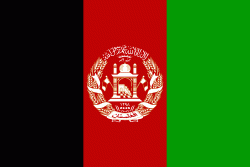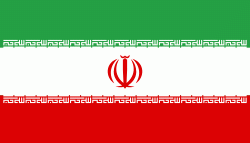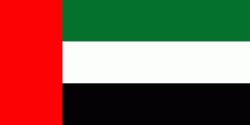Persian language
Persian, also known by its endonym Farsi (فارسی, Fārsī, ), is a Western Iranian language belonging to the Iranian branch of the Indo-Iranian subdivision of the Indo-European languages. Persian is a pluricentric language predominantly spoken and used officially within Iran, Afghanistan, and Tajikistan in three mutually intelligible standard varieties, namely Iranian Persian (officially known as Persian), Dari Persian (officially known as Dari since 1964) and Tajiki Persian (officially known as Tajik since 1999). It is also spoken natively in the Tajik variety by a significant population within Uzbekistan, as well as within other regions with a Persianate history in the cultural sphere of Greater Iran. It is written officially within Iran and Afghanistan in the Persian alphabet, a derivation of the Arabic script, and within Tajikistan in the Tajik alphabet, a derivation of the Cyrillic script.
Modern Persian is a continuation of Middle Persian, an official language of the Sasanian Empire (224–651 CE), itself a continuation of Old Persian, which was used in the Achaemenid Empire (550–330 BCE). It originated in the region of Pars (Persia) in southwestern Iran. Its grammar is similar to that of many European languages.
Throughout history, Persian was considered prestigious by various empires centered in Western Asia, Central Asia, and South Asia. Old Persian is attested in Old Persian cuneiform on inscriptions from between the 6th and 4th century BC. Middle Persian is attested in Aramaic-derived scripts (Pahlavi and Manichaean) on inscriptions and in Zoroastrian and Manichaean scriptures from between the third to the tenth centuries (see Middle Persian literature). New Persian literature was first recorded in the ninth century, after the Muslim conquest of Persia, since then adopting the Arabic script.
Persian was the first language to break through the monopoly of Arabic on writing in the Muslim world, with Persian poetry becoming a tradition in many eastern courts. As British scholar David G. Hogarth stated, "Never has captor more swiftly and subtly been captured by his captive than Arabic by Persia". It was used officially as a language of bureaucracy even by non-native speakers, such as the Ottomans in Anatolia, the Mughals in South Asia, and the Pashtuns in Afghanistan. It influenced languages spoken in neighboring regions and beyond, including other Iranian languages, the Turkic, Armenian, Georgian, and Indo-Aryan languages. It also exerted some influence on Arabic, while borrowing a lot of vocabulary from it in the Middle Ages.
Some of the world's most famous pieces of literature from the Middle Ages, such as the Shahnameh by Ferdowsi, the works of Rumi, the Rubáiyát of Omar Khayyám, the Panj Ganj of Nizami Ganjavi, The Divān of Hafez, The Conference of the Birds by Attar of Nishapur, and the miscellanea of Gulistan and Bustan by Saadi Shirazi, are written in Persian. Some of the prominent modern Persian poets were Nima Yooshij, Ahmad Shamlou, Simin Behbahani, Sohrab Sepehri, Rahi Mo'ayyeri, Mehdi Akhavan-Sales, and Forugh Farrokhzad.
There are approximately 110 million Persian speakers worldwide, including Persians, Lurs, Tajiks, Hazaras, Iranian Azeris, Iranian Kurds, Balochs, Tats, and Aimaqs. The term Persophone might also be used to refer to a speaker of Persian.
Persian is a member of the Western Iranian group of the Iranian languages, which make up a branch of the Indo-European languages in their Indo-Iranian subdivision. The Western Iranian languages themselves are divided into two subgroups: Southwestern Iranian languages, of which Persian is the most widely spoken, and Northwestern Iranian languages, of which Kurdish and Balochi are the most widely spoken.
Modern Persian is a continuation of Middle Persian, an official language of the Sasanian Empire (224–651 CE), itself a continuation of Old Persian, which was used in the Achaemenid Empire (550–330 BCE). It originated in the region of Pars (Persia) in southwestern Iran. Its grammar is similar to that of many European languages.
Throughout history, Persian was considered prestigious by various empires centered in Western Asia, Central Asia, and South Asia. Old Persian is attested in Old Persian cuneiform on inscriptions from between the 6th and 4th century BC. Middle Persian is attested in Aramaic-derived scripts (Pahlavi and Manichaean) on inscriptions and in Zoroastrian and Manichaean scriptures from between the third to the tenth centuries (see Middle Persian literature). New Persian literature was first recorded in the ninth century, after the Muslim conquest of Persia, since then adopting the Arabic script.
Persian was the first language to break through the monopoly of Arabic on writing in the Muslim world, with Persian poetry becoming a tradition in many eastern courts. As British scholar David G. Hogarth stated, "Never has captor more swiftly and subtly been captured by his captive than Arabic by Persia". It was used officially as a language of bureaucracy even by non-native speakers, such as the Ottomans in Anatolia, the Mughals in South Asia, and the Pashtuns in Afghanistan. It influenced languages spoken in neighboring regions and beyond, including other Iranian languages, the Turkic, Armenian, Georgian, and Indo-Aryan languages. It also exerted some influence on Arabic, while borrowing a lot of vocabulary from it in the Middle Ages.
Some of the world's most famous pieces of literature from the Middle Ages, such as the Shahnameh by Ferdowsi, the works of Rumi, the Rubáiyát of Omar Khayyám, the Panj Ganj of Nizami Ganjavi, The Divān of Hafez, The Conference of the Birds by Attar of Nishapur, and the miscellanea of Gulistan and Bustan by Saadi Shirazi, are written in Persian. Some of the prominent modern Persian poets were Nima Yooshij, Ahmad Shamlou, Simin Behbahani, Sohrab Sepehri, Rahi Mo'ayyeri, Mehdi Akhavan-Sales, and Forugh Farrokhzad.
There are approximately 110 million Persian speakers worldwide, including Persians, Lurs, Tajiks, Hazaras, Iranian Azeris, Iranian Kurds, Balochs, Tats, and Aimaqs. The term Persophone might also be used to refer to a speaker of Persian.
Persian is a member of the Western Iranian group of the Iranian languages, which make up a branch of the Indo-European languages in their Indo-Iranian subdivision. The Western Iranian languages themselves are divided into two subgroups: Southwestern Iranian languages, of which Persian is the most widely spoken, and Northwestern Iranian languages, of which Kurdish and Balochi are the most widely spoken.
Country
-
Afghanistan
Afghanistan, officially the Islamic Emirate of Afghanistan, is a landlocked country located at the crossroads of Central Asia and South Asia. Referred to as the Heart of Asia, it is bordered by Pakistan to the east and south, Iran to the west, Turkmenistan to the northwest, Uzbekistan to the north, Tajikistan to the northeast, and China to the northeast and east. Occupying 652864 km2 of land, the country is predominantly mountainous with plains in the north and the southwest, which are separated by the Hindu Kush mountain range. Kabul is the country's largest city and serves as its capital. , Afghanistan's population is 40.2 million (officially estimated to be 32.9 million ), composed of ethnic Pashtuns, Tajiks, Hazaras, Uzbeks, Turkmens, Qizilbash, Aimak, Pashayi, Baloch, Pamiris, Nuristanis, and others.
Human habitation in Afghanistan dates back to the Middle Paleolithic era, and the country's strategic location along the historic Silk Road has led it to being described, picturesquely, as the ‘roundabout of the ancient world’. Popularly referred to as the graveyard of empires, the land has historically been home to various peoples and has witnessed numerous military campaigns, including those by the Persians, Alexander the Great, the Maurya Empire, Arab Muslims, the Mongols, the British, the Soviet Union, and most recently by a US-led coalition. Afghanistan also served as the source from which the Greco-Bactrians and the Mughals, amongst others, rose to form major empires. The various conquests and periods in both the Iranian and Indian cultural spheres made the area a center for Zoroastrianism, Buddhism, Hinduism, and later Islam throughout history. -
Bahrain
Bahrain (البحرين, locally ), officially the Kingdom of Bahrain, is an island country in Western Asia. It is situated on the Persian Gulf, and comprises a small archipelago made up of 50 natural islands and an additional 33 artificial islands, centered on Bahrain Island which makes up around 83 percent of the country's landmass. Bahrain is situated between Qatar and the northeastern coast of Saudi Arabia, to which it is connected by the King Fahd Causeway. According to the 2020 census, the country's population numbers 1,501,635, of whom 712,362 are Bahraini nationals. Bahrain spans some 760 km2, and is the third-smallest nation in Asia after the Maldives and Singapore. The capital and largest city is Manama.
Bahrain is the site of the ancient Dilmun civilization. It has been famed since antiquity for its pearl fisheries, which were considered the best in the world into the 19th century. Bahrain was one of the earliest areas to be influenced by Islam, during the lifetime of Muhammad in 628 AD. Following a period of Arab rule, Bahrain was ruled by the Portuguese Empire from 1521 until 1602, when they were expelled by Shah Abbas I of the Safavid dynasty. In 1783, the Bani Utbah clan captured Bahrain from Nasr Al-Madhkur and it has since been ruled by the Al Khalifa royal family, with Ahmed al Fateh as Bahrain's first hakim. -
Iran
Iran, officially the Islamic Republic of Iran, and also called Persia, is a country located in Western Asia. It is bordered by Iraq and Turkey to the west, by Azerbaijan and Armenia to the northwest, by the Caspian Sea and Turkmenistan to the north, by Afghanistan and Pakistan to the east, and by the Gulf of Oman and the Persian Gulf to the south. It covers an area of 1.64 e6km2, making it the 17th-largest country. Iran has an estimated population of 86.8 million, making it the 17th-most populous country in the world, and the second-largest in the Middle East. Its largest cities, in descending order, are the capital Tehran, Mashhad, Isfahan, Karaj, Shiraz, and Tabriz.
The country is home to one of the world's oldest civilizations, beginning with the formation of the Elamite kingdoms in the fourth millennium BC. It was first unified by the Medes, an ancient Iranian people, in the seventh century BC, and reached its territorial height in the sixth century BC, when Cyrus the Great founded the Achaemenid Persian Empire, which became one of the largest empires in history and a superpower. The Achaemenid Empire fell to Alexander the Great in the fourth century BC and was subsequently divided into several Hellenistic states. An Iranian rebellion established the Parthian Empire in the third century BC, which was succeeded in the third century AD by the Sassanid Empire, a major world power for the next four centuries. Arab Muslims conquered the empire in the seventh century AD, which led to the Islamization of Iran. It subsequently became a major center of Islamic culture and learning, with its art, literature, philosophy, and architecture spreading across the Muslim world and beyond during the Islamic Golden Age. Over the next two centuries, a series of native Iranian Muslim dynasties emerged before the Seljuk Turks and the Mongols conquered the region. In the 15th century, the native Safavids re-established a unified Iranian state and national identity, and converted the country to Shia Islam. Under the reign of Nader Shah in the 18th century, Iran presided over the most powerful military in the world, though by the 19th century, a series of conflicts with the Russian Empire led to significant territorial losses. The early 20th century saw the Persian Constitutional Revolution. Efforts to nationalize its fossil fuel supply from Western companies led to an Anglo-American coup in 1953, which resulted in greater autocratic rule under Mohammad Reza Pahlavi and growing Western political influence. He went on to launch a far-reaching series of reforms in 1963. After the Iranian Revolution, the current Islamic Republic was established in 1979 by Ruhollah Khomeini, who became the country's first Supreme Leader. -
United Arab Emirates
The United Arab Emirates (UAE; اَلْإِمَارَات الْعَرَبِيَة الْمُتَحِدَة ), or simply the Emirates (الِْإمَارَات ), is a country in Western Asia (The Middle East). It is located at the eastern end of the Arabian Peninsula and shares borders with Oman and Saudi Arabia, while having maritime borders in the Persian Gulf with Qatar and Iran. Abu Dhabi is the nation's capital, while Dubai, the most populous city, is an international hub.
The United Arab Emirates is an elective monarchy formed from a federation of seven emirates, consisting of Abu Dhabi (the capital), Ajman, Dubai, Fujairah, Ras Al Khaimah, Sharjah and Umm Al Quwain. Each emirate is governed by an emir and together the emirs form the Federal Supreme Council. The members of the Federal Supreme Council elect a president and vice president from among their members. In practice, the emir of Abu Dhabi serves as president while the ruler of Dubai is vice president and also prime minister. In 2013, the country had a population of 9.2 million, of which 1.4 million were Emirati citizens and 7.8 million were expatriates. , the United Arab Emirates has an estimated population of roughly 9.9 million.
